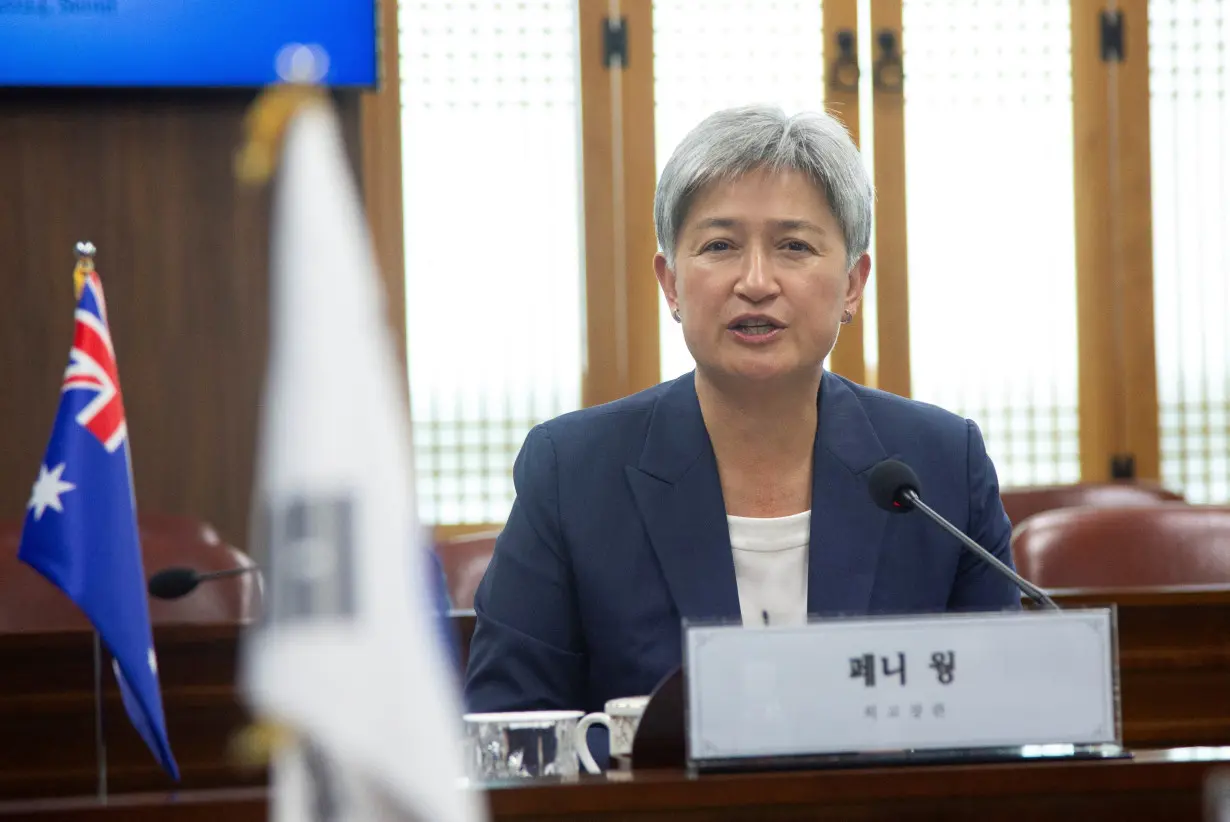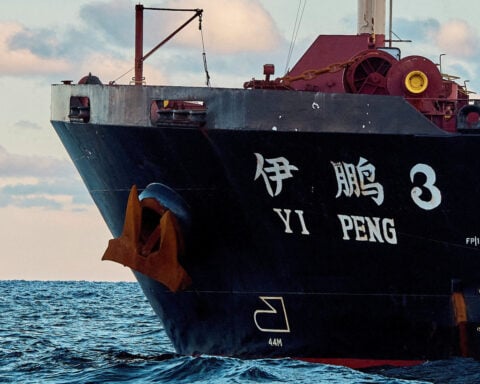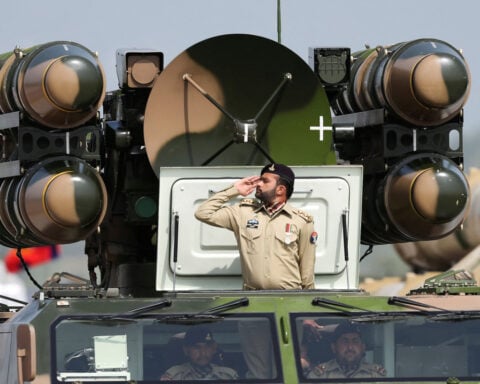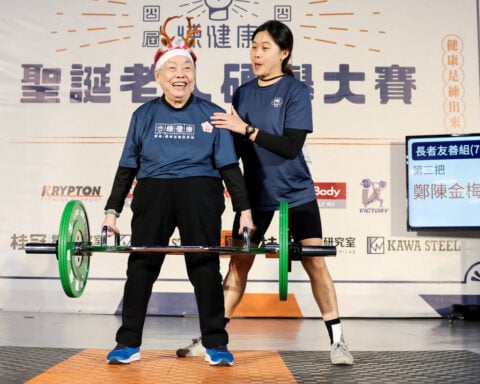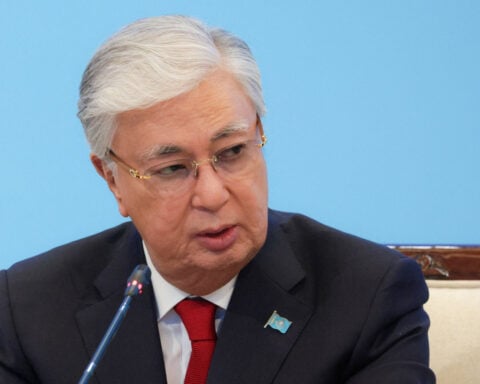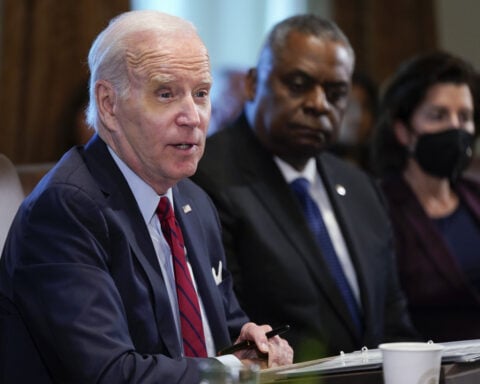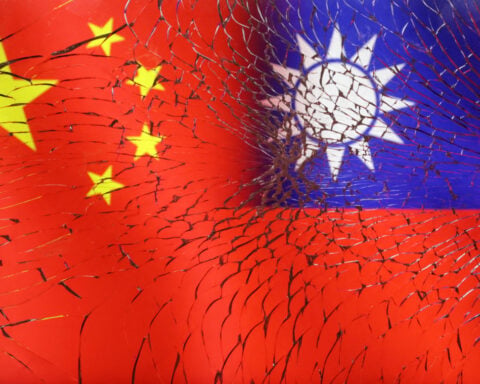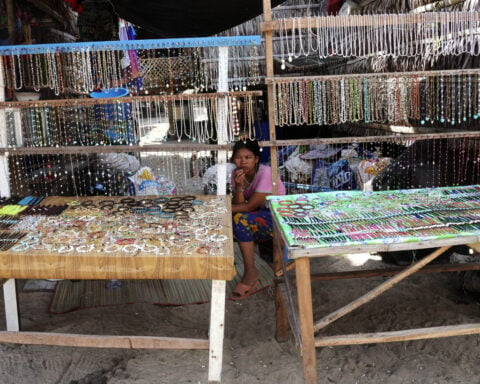By Hyunsu Yim
PAJU, South Korea (Reuters) -Australian Foreign Minister Penny Wong said on Tuesday that a security pact signed by Russia and North Korea was destabilising the region, adding that North Korea was giving weapons to Russia in "flagrant violation" of U.N. Security Council resolutions.
Wong was speaking to reporters in the city of Paju after a visit to the nearby Demilitarized Zone (DMZ) separating the two Koreas, which remain technically at war.
"We see Russia behaving in ways which are not conducive to peace but are escalatory," she said, referring to a security pact signed between the North Korean leader Kim Jong Un and Russian President Vladimir Putin in June.
Under the pact, North Korea and Russia agreed to provide immediate military assistance if either faces armed aggression.
Washington and its allies are also alarmed by the deepening military cooperation between Russia and North Korea, and have accused both nations of breaching international laws by trading in weapons for Russia to use against Ukraine.
Pyongyang and Moscow have denied conducting any arms transactions.
"The continued transfer (of) weapons from North Korea to Russia is a flagrant violation of U.N. Security Council resolutions," Wong told reporters.
South Korean Foreign Minister Cho Tae-yul also expressed concern over North Korea and Russia's military cooperation during a meeting with Wong, Seoul's foreign ministry said.
"Korea and Australia are aligned in our vision for upholding the rules based order in the region," Cho said.
South Korea and Australia will also launch a dialogue on economic security and hold annual talks on the climate, the ministry statement added.
Wong arrived in Seoul after attending summits in Laos at a gathering of the ASEAN bloc and joining a meeting of Quad foreign ministers in Tokyo on Monday with counterparts from the United States, Japan and India.
In a statement ahead of her trip, Wong said Australia and South Korea aim to build on their strategic alignment with expanded bilateral and regional cooperation, including on energy transition and economic security.
(Reporting by Hyunsu Yim in Seoul and Dogyun Kim in Paju; Editing by Ed Davies and Miral Fahmy)

 Isolated Chicago communities secure money for a coveted transit project before Trump takes office
Isolated Chicago communities secure money for a coveted transit project before Trump takes office
 Caitlin Clark effect hasn't reversed the decades-long decline in girls basketball participation
Caitlin Clark effect hasn't reversed the decades-long decline in girls basketball participation
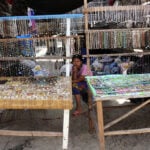 The water was their livelihood. Now Thailand's sea nomads work to preserve a vanishing way of life
The water was their livelihood. Now Thailand's sea nomads work to preserve a vanishing way of life
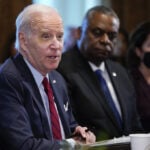 China says US is 'playing with fire' after latest military aid for Taiwan
China says US is 'playing with fire' after latest military aid for Taiwan
 Winter is hitting Gaza and many Palestinians have little protection from the cold
Winter is hitting Gaza and many Palestinians have little protection from the cold
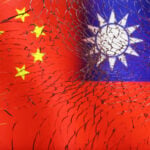 China calls Taiwan a 'red line', criticises new US military aid to island
China calls Taiwan a 'red line', criticises new US military aid to island
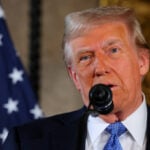 Trump says he might demand Panama hand over canal
Trump says he might demand Panama hand over canal
 China's Nio says new Firefly EV to go on sale in Europe in H1 2025
China's Nio says new Firefly EV to go on sale in Europe in H1 2025
 Howard throws 2 TD passes to Smith to help Ohio State rout Tennessee 42-17 in CFP
Howard throws 2 TD passes to Smith to help Ohio State rout Tennessee 42-17 in CFP
 JuJu Watkins and No. 7 USC hold off Paige Bueckers and fourth-ranked UConn 72-70
JuJu Watkins and No. 7 USC hold off Paige Bueckers and fourth-ranked UConn 72-70
